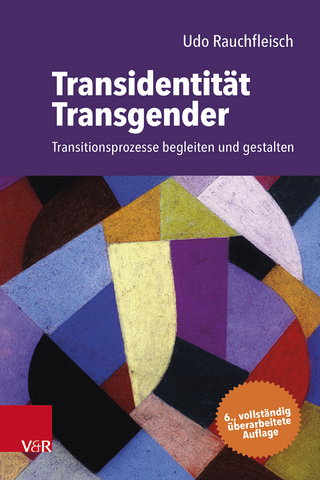
Sexual Enjoyment in British Romanticism
Gender and Psychoanalysis, 1753-1835
Seiten
2015
McGill-Queen's University Press (Verlag)
978-0-7735-4509-0 (ISBN)
McGill-Queen's University Press (Verlag)
978-0-7735-4509-0 (ISBN)
- Titel z.Zt. nicht lieferbar
- Versandkostenfrei innerhalb Deutschlands
- Auch auf Rechnung
- Verfügbarkeit in der Filiale vor Ort prüfen
- Artikel merken
How British Romantic writers reimagined sexual enjoyment and invented psychoanalysis in the process.
Debates about gender in the British Romantic period often invoked the idea of sexual enjoyment: there was a broad cultural concern about jouissance, the all-engulfing pleasure pertaining to sexual gratification. On one hand, these debates made possible the modern psychological concept of the unconscious - since desire was seen as an uncontrollable force, the unconscious became the repository of disavowed enjoyment and the reason for sexual difference. On the other hand, the tighter regulation of sexual enjoyment made possible a vast expansion of the limits of imaginable sexuality. In Sexual Enjoyment and British Romanticism, David Sigler shows how literary writers could resist narrowing gender categories by imagining unregulated enjoyment. As some of the era's most prominent thinkers - including Edmund Burke, Mary Wollstonecraft, Mary Robinson, Joanna Southcott, Charlotte Dacre, Jane Austen, and Percy Bysshe Shelley - struggled to understand sexual enjoyment, they were able to devise new pleasures in a time of narrowing sexual possibilities.
Placing Romantic-era literature in conversation with Lacanian psychoanalytic theory, Sexual Enjoyment in British Romanticism reveals the fictive structure of modern sexuality, makes visible the diversity of sexual identities from the period, and offers a new understanding of gender in British Romanticism.
Debates about gender in the British Romantic period often invoked the idea of sexual enjoyment: there was a broad cultural concern about jouissance, the all-engulfing pleasure pertaining to sexual gratification. On one hand, these debates made possible the modern psychological concept of the unconscious - since desire was seen as an uncontrollable force, the unconscious became the repository of disavowed enjoyment and the reason for sexual difference. On the other hand, the tighter regulation of sexual enjoyment made possible a vast expansion of the limits of imaginable sexuality. In Sexual Enjoyment and British Romanticism, David Sigler shows how literary writers could resist narrowing gender categories by imagining unregulated enjoyment. As some of the era's most prominent thinkers - including Edmund Burke, Mary Wollstonecraft, Mary Robinson, Joanna Southcott, Charlotte Dacre, Jane Austen, and Percy Bysshe Shelley - struggled to understand sexual enjoyment, they were able to devise new pleasures in a time of narrowing sexual possibilities.
Placing Romantic-era literature in conversation with Lacanian psychoanalytic theory, Sexual Enjoyment in British Romanticism reveals the fictive structure of modern sexuality, makes visible the diversity of sexual identities from the period, and offers a new understanding of gender in British Romanticism.
David Sigler is assistant professor of English at the University of Calgary.
| Verlagsort | Montreal |
|---|---|
| Sprache | englisch |
| Maße | 152 x 229 mm |
| Themenwelt | Geisteswissenschaften ► Psychologie ► Sexualität / Partnerschaft |
| Geisteswissenschaften ► Sprach- / Literaturwissenschaft ► Anglistik / Amerikanistik | |
| Geisteswissenschaften ► Sprach- / Literaturwissenschaft ► Literaturwissenschaft | |
| ISBN-10 | 0-7735-4509-3 / 0773545093 |
| ISBN-13 | 978-0-7735-4509-0 / 9780773545090 |
| Zustand | Neuware |
| Haben Sie eine Frage zum Produkt? |
Mehr entdecken
aus dem Bereich
aus dem Bereich
Transitionsprozesse begleiten und gestalten
Buch | Softcover (2024)
Vandenhoeck & Ruprecht (Verlag)
35,00 €
Wege aus dem Chemsex-Konsum bei MSM
Buch | Softcover (2022)
Psychiatrie Verlag
25,00 €
die wichtigsten Konzepte, Tools und Interventionen
Buch | Softcover (2023)
Vandenhoeck & Ruprecht (Verlag)
25,00 €


